Photo: Gabe Ginsberg/Getty Images for The Latin Recording Academy
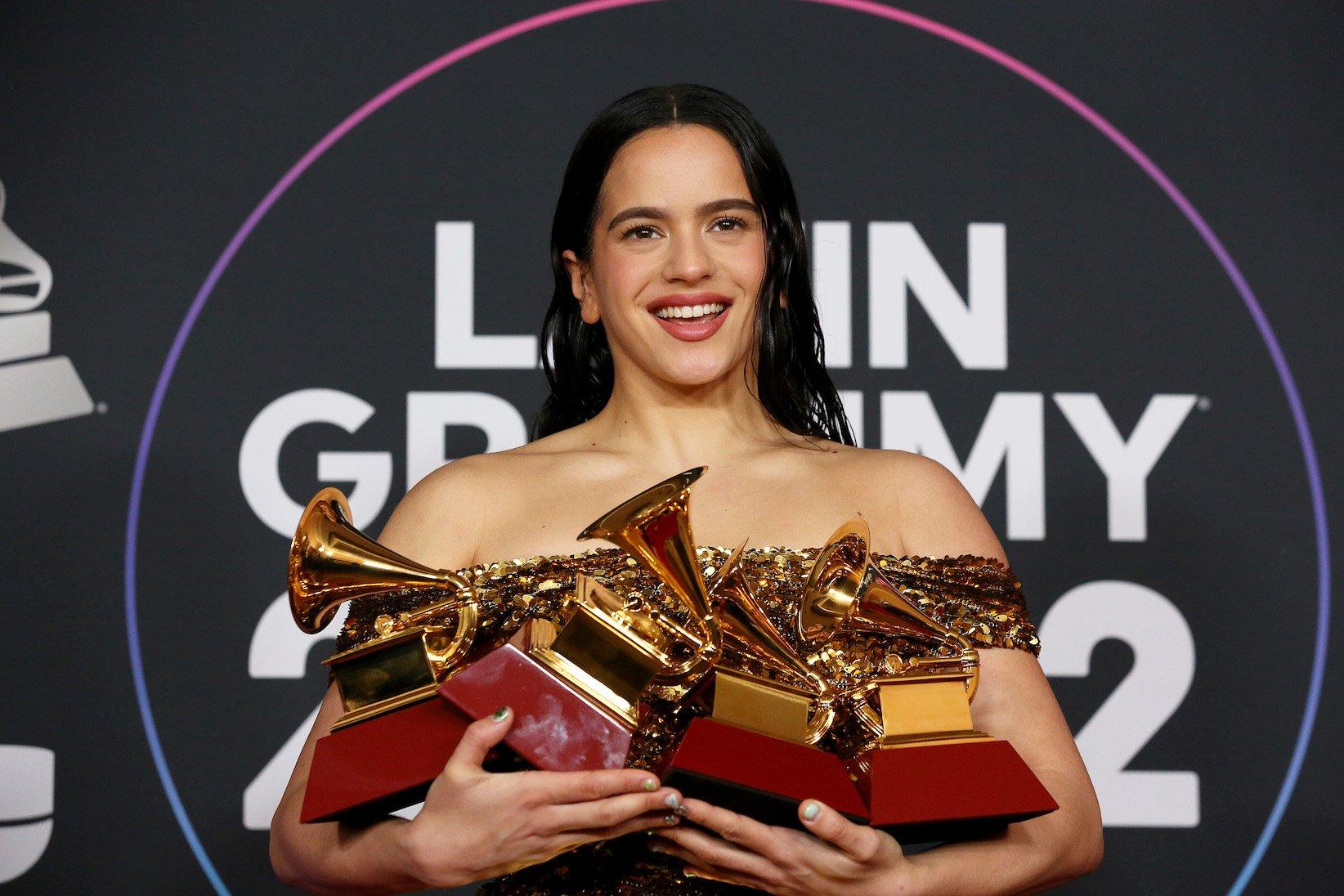
news
2022 Latin GRAMMYs: Rosalía Wins Latin GRAMMY For Album Of The Year For 'Motomami'
Rosalía won the Latin GRAMMY for Album Of The Year at the 2022 Latin GRAMMYs, for her album 'MOTOMAMI.'
Rosalía won the Latin GRAMMY for Album Of The Year for MOTOMAMI at the 2022 Latin GRAMMYs.
Christina Aguilera, Marc Anthony, Bad Bunny, Bomba Estéreo, Jorge Drexler, Elsa y Elmar, Fonseca, Alejandro Sanz and Sebastián Yatra were the other nominees in the prestigious category.
Rosalía became the first woman in Latin GRAMMY history to win Album Of The Year twice, after winning the category in 2019 for El Mal Querer.
This year, she was one of the most nominated artists at the 2022 GRAMMYs alongside Rauw Alejandro and Jorge Drexler. MOTOMAMI won in the Best Alternative Music Album and Best Recording Package categories, and Rosalía was also nominated for Song of the Year, Best Alternative Song, Best Short Form Music Video, and Record of the Year.
Rosalía took audiences on an experimental journey through MOTOMAMI at the ceremony, performing her hits "Hentai," "La Fama," and "Despecha.”
Check out the complete list of winners and nominees at the 2022 Latin GRAMMYs.
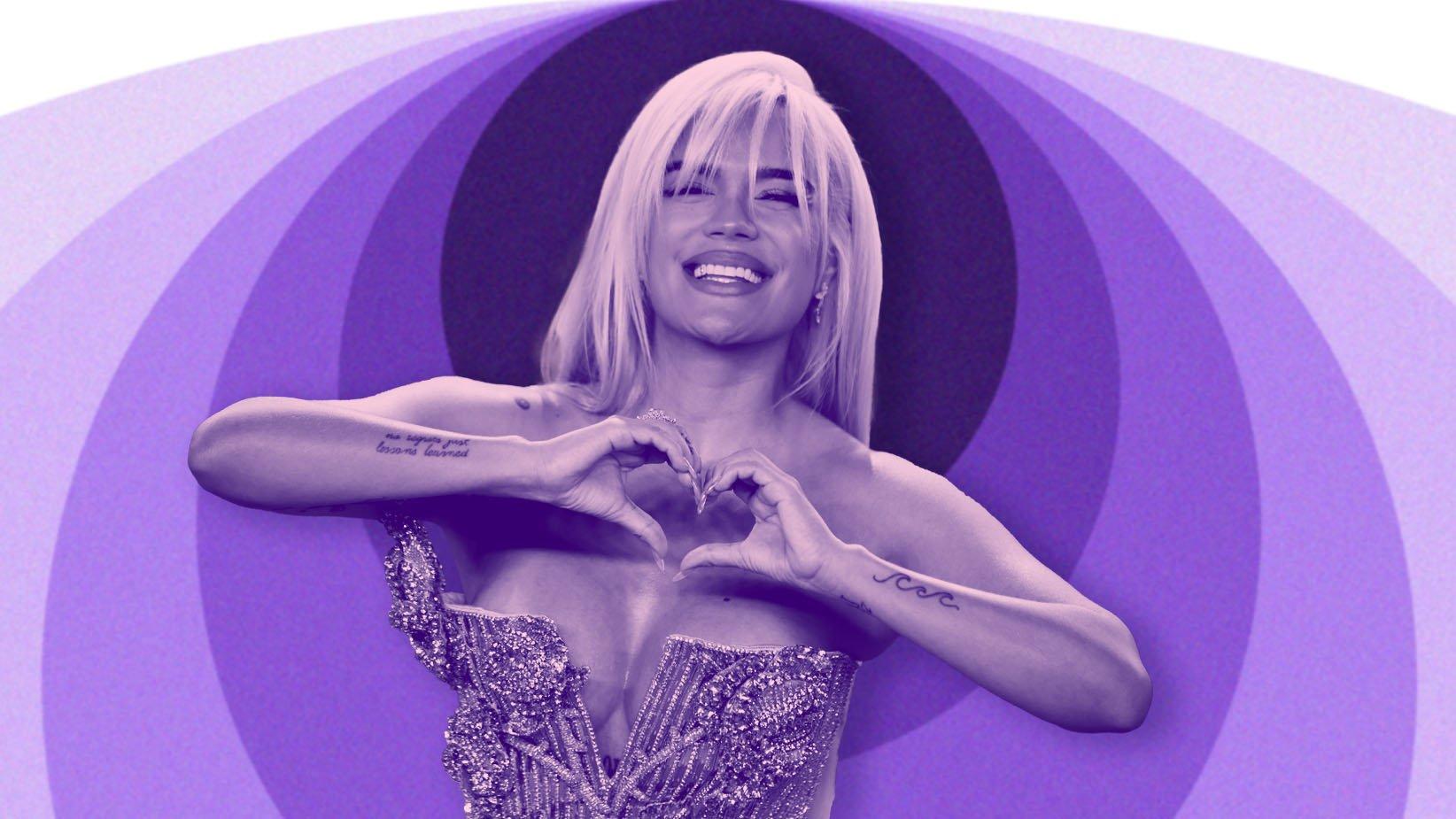
Photo: Patricia J. Garcinuno / WireImage / Getty Images
feature
Mañana Y Siempre: How Karol G Has Made The World Mas Bonito
'Mañana Será Bonito' may have been the vehicle for Karol G's massive year, but the 2024 GRAMMY nominee for Best Música Urbana Album has been making strides in reggaeton, urbano and the music industry at large for a long time.
For Karol G, 2023 was a watershed year. Her fourth album, Mañana Será Bonito, peaked at No. 1 on the Billboard Hot 200 and took home the golden gramophone for Album Of The Year at the Latin GRAMMYs. Her many milestones also included a Rolling Stone cover, and signing with Interscope. At the 2024 GRAMMYs, Mañana Será Bonito is nominated for Best Música Urbana Album.
The Colombian singer and songwriter was suddenly everywhere in 2023, but this moment is the culmination of a long, steady rise. Karol G has been on the scene for some time, and changing it for the better just by being who she is: an extremely talented woman making waves in a genre still dominated by men.
Karol G has been a pivotal figure in the world of urbano since 2017, when she collaborated with Bad Bunny on the Latin trap single "Ahora Me Llama." It was a transformative moment for both artists, whose careers took off precipitously after its release. The track led Ms. G’s aptly titled debut album, Unstoppable, which went multi-platinum and peaked at No. 2 on both the U.S. Top Latin Albums and U.S. Latin Rhythm Albums charts. At the 2018 Latin GRAMMYs, Karol was awarded Best New Artist.
2024 GRAMMYs: Explore More & Meet The Nominees
Although she came out of the gate in an unstoppable fashion, Karol G's chart-topping debut was the result of years of touring and recording. The artist born Carolina Giraldo Navarro was no overnight success.
She started singing as a teenager growing up in Medellín and, after signing to Colombia's Flamingo Records, chose the name Karol G and began releasing music. Early on, she flew to Miami for a meeting with Universal Records, but they chose not to sign her on the basis that a woman would not be successful making reggaeton — a severe miscalculation, that belies female pioneers and a blossoming roster of contemporary acts.
Thankfully, she ignored them. A year after "Ahora Me Llama" and Unstoppable, Karol G won her first Latin GRAMMY.
The star’s determination makes her a role model, but Karol G's career has also been defined by an inspiring integrity around her principles and artistic vision. By now, it is a well-known anecdote that she turned down the song "Sin Pijama" because it references marijuana use. Karol does not smoke, so the lyrics would not have been authentic to her as a person, or as an artist.
This authenticity has doubtless been key to Karol G's success. Rather than try to fit an established mold, she brings a uniquely sunny swagger and sporty style to reggaeton. She projects a powerful and feminine energy, and her music often expresses a healthy sense of sexual independence and self-empowerment. This is an intentional part of her message, especially to her female fans.
"They teach us it’s wrong to celebrate ourselves for something we have," she told Rolling Stone of her musical messaging. "And it’s not. We have to be the first ones to give ourselves credit."
Like early collaborator Bad Bunny, Karol G is able to reach a global audience without having to change the language she sings in, her genre of choice, or her messages. Case in point: One of her 2023 accomplishments was becoming the first Latina to headline a global stadium tour, and the highest-grossing Latin touring artist of the year.
She also became the first Latina to headline Lollapalooza and, in between record-breaking tour dates, saw her song "WATATI" featured on Barbie The Album. (The soundtrack is nominated for Best Compilation Soundtrack For Visual Media at the 66th GRAMMY Awards.)
In November, she closed out her big year with a sweep of the Latin GRAMMYs: Mañana Será Bonito received the award for Best Música Urbana Album and Album Of The Year; her Shakira collab "TQG" took home the golden gramophone for Best Urban Fusion/Performance. When she accepted her award for Best Música Urbana Album, Karol exclaimed, "How cool is it for a woman to win this?"
Karol G’s wins made up a large part of an awards ceremony where women won big: Shakira won Song Of The Year for her collaboration with Bizzarap, while Natalia Lafourcade won Record Of The Year and Joaquina took home Best New Artist. This was the first year that women won in all the general categories — something that suggests progress for the Latin music industry. The last time a woman won the Latin GRAMMY for Best Música Urbana Album was in 2013, when Spanish rapper Mala Rodríguez took home the award for Bruja.
Watching the Latin GRAMMYs this year, it was easy to forget that women still have a long way to go to achieve parity with their male counterparts in the music industry. If you lost sight of that, the year-end Latin charts would bring you back to reality: Of the top 50 tracks on the Hot Latin Songs chart, 11 primarily featured women, but six of those tracks belonged to Karol G. Karol’s presence matters and she knows it.
Karol G brings a powerful feminine energy to reggaeton and Latin trap, but also an unapologetic feminism. While this is explicit in her music, it's also clear in the creative partnerships she makes. She’s had many high profile collaborations with male artists, but just as many with a diverse roster of female artists from reggaeton OG Ivy Queen ("Leyendas") to Latin fusion pop singer Kali Uchis ("Me Tengo Que Ir," "Labios Mordidos"). In an arena so dominated by male artists, each collaboration with another woman is meaningful, but her collaborations with rising artists, such as Young Miko — who appears on the song "Dispo" from Karol’s Bichota Season — truly make a difference.
Artists like Karol G increase the range of possibilities for artists in their wake, and for anyone in the music industry who flouts narrow expectations. Karol G knows that her victories have larger implications, and this eye toward the future has helped her reach unprecedented heights. "I understand how hard it is [for women to break through] because of how hard it was for me,"she recently told Billboard.
It wasn't easy for Karol G to get where she is today, but she has been opening doors for others — women, artists in reggaeton, artists in urbano and others — every step of the way. From here on, the title of her album is ringing more and more prescient, and that’s mas bonito.
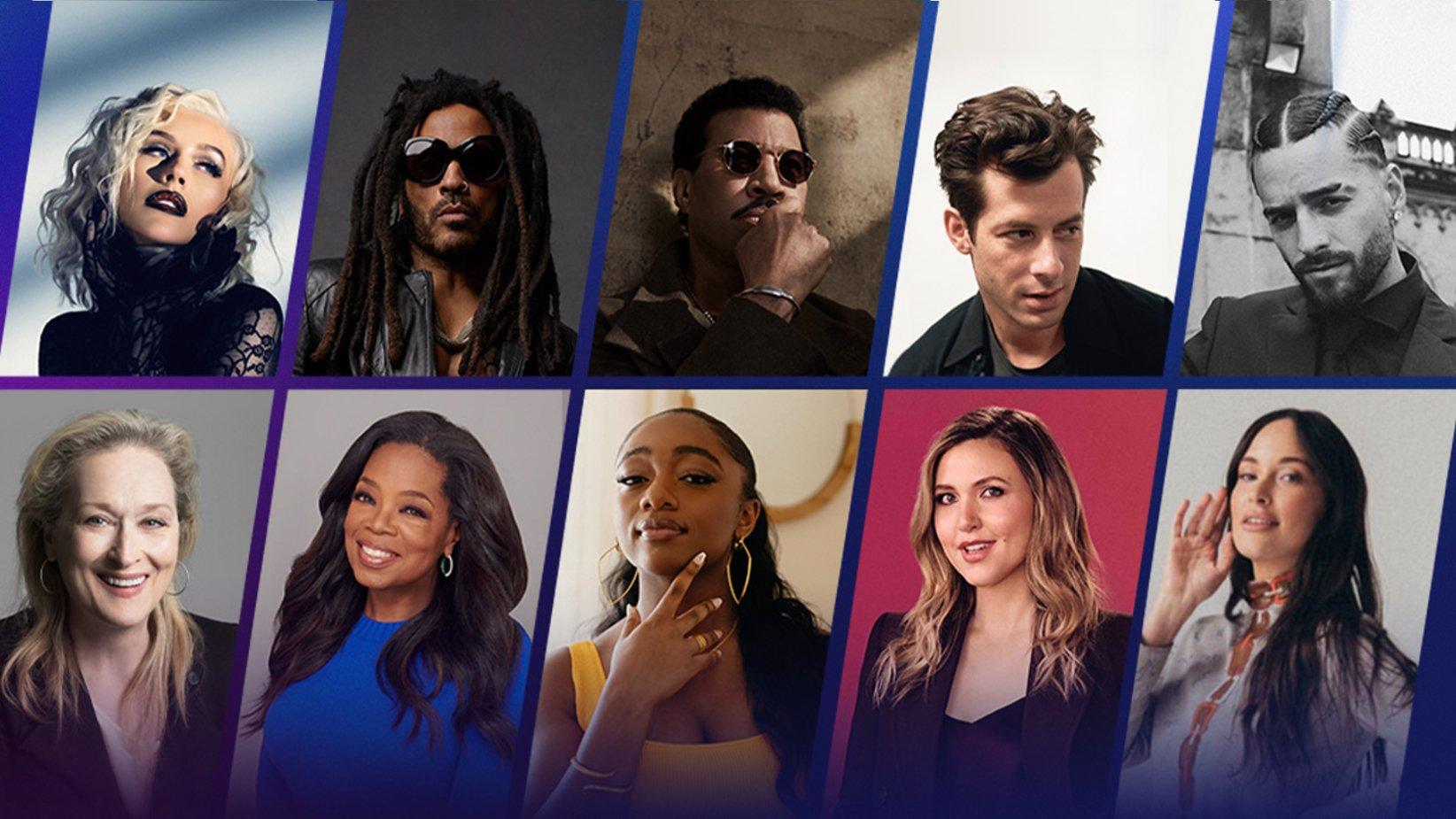
Photos courtesy of the artists
news
2024 GRAMMYs Presenters Announced: Christina Aguilera, Oprah Winfrey, Meryl Streep, Kacey Musgraves, Maluma, Taylor Tomlinson & More
Additional presenters for the 2024 GRAMMYs include Lenny Kravitz, Lionel Richie, Mark Ronson, and Samara Joy. The 2024 GRAMMYs will broadcast live from Crypto.com Arena in Los Angeles on Sunday, Feb. 4.
Updated Friday, Feb. 2, to add Kacey Musgraves as a presenter.
Presenters for the 2024 GRAMMYs have been announced: Christina Aguilera, Lenny Kravitz, Lionel Richie, Mark Ronson, Maluma, Kacey Musgraves, Meryl Streep, Samara Joy, Taylor Tomlinson, and Oprah Winfrey are all confirmed to take the GRAMMY stage on Music's Biggest Night this weekend, Sunday, Feb. 4. Of course, it wouldn't be a proper GRAMMY night without a few surprise guests, so make sure to tune in to find out who you'll see on GRAMMY Sunday.
In addition to the star-studded presenter lineup, the 2024 GRAMMYs will feature breathtaking performances from the leading artists in music today. Performers at the 2024 GRAMMYs include Billie Eilish, Billy Joel, Burna Boy, Dua Lipa, Joni Mitchell, Luke Combs, Olivia Rodrigo, SZA, Travis Scott, and U2. Several confirmed GRAMMY performers will make GRAMMY history at the 2024 GRAMMYs this weekend: Mitchell will make her GRAMMY performance debut, while U2 will deliver the first-ever broadcast performance from Sphere in Las Vegas. Additional performers will be announced in the coming days. See the full list of performers, presenters and host at the 2024 GRAMMYs to date.
Learn More: 2024 GRAMMY Nominations: See The Full Nominees List
2024 GRAMMYs: Explore More & Meet The Nominees
The 2024 GRAMMYs, officially known as the 66th GRAMMY Awards, will broadcast live from Crypto.com Arena in Los Angeles on Sunday, Feb. 4, at 8 p.m. ET/5 p.m. PT on the CBS Television Network and will be available to stream live and on demand on Paramount+.^ Prior to the Telecast, the 2024 GRAMMYs Premiere Ceremony will broadcast live from the Peacock Theater at 12:30 p.m. PT/3:30 p.m. ET and will be streamed live on live.GRAMMY.com. On GRAMMY Sunday, fans can access exclusive behind-the-scenes GRAMMY Awards content, including performances, acceptance speeches, interviews from the GRAMMY Live red-carpet special, and more via the Recording Academy's digital experience on live.GRAMMY.com.
Trevor Noah, the two-time GRAMMY-nominated comedian, actor, author, podcast host, and former "The Daily Show" host, returns to host the 2024 GRAMMYs for the fourth consecutive year; he is currently nominated at the 2024 GRAMMYs in the Best Comedy Album Category for his 2022 Netflix comedy special, I Wish You Would.
The 66th GRAMMY Awards are produced by Fulwell 73 Productions for the Recording Academy for the fourth consecutive year. Ben Winston, Raj Kapoor and Jesse Collins are executive producers.
^Paramount+ with SHOWTIME subscribers will have access to stream live via the live feed of their local CBS affiliate on the service, as well as on demand in the United States. Paramount+ Essential subscribers will not have the option to stream live but will have access to on-demand the day after the special airs in the U.S. only.
Stay tuned for more updates as we approach Music's Biggest Night!
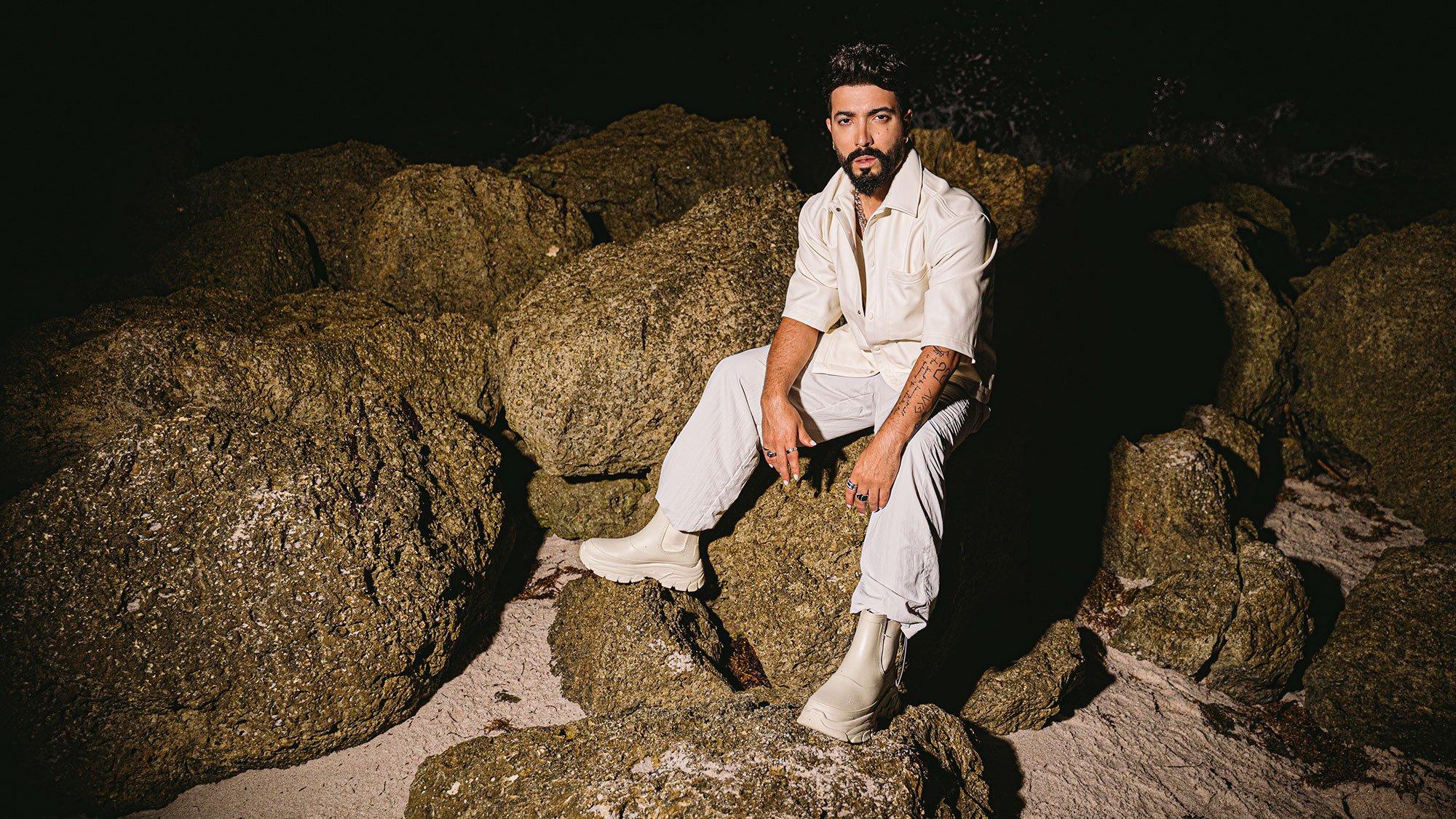
Photo: Juan Hernandez courtesy Sony Music Latin
interview
Best Tropical Latin Album Nominee Luis Figueroa On Charting A New Path For Salsa & The Power Of Puerto Rico
"I realized that I wanted to partake in the evolution and revolution of this traditional genre," Figueroa says. At the 2024 GRAMMYs, his urbano-meets-salsa EP, 'Voy A Ti,' is up against works by Carlos Vives, Rubén Blades and Grupo Niche.
Back in 2021, a song released on Marc Anthony’s record label caused a stir among salsa fans.
It was a revamped version of the minor 1993 hit "Hasta el Sol de Hoy," and the track introduced singer/songwriter Luis Figueroa as a messenger of change. It pulsated with the languid vibes of salsa romántica, but also uncoiled a harder, more ferocious groove on the chorus. It sounded like a Marc Anthony hit, but with an added patina of 2020’s urbano slickness. Anthony loved it.
"I realized that there was an open door —the opportunity to add a fresher sound to salsa for a younger audience," Figueroa, 34, tells GRAMMY.com.
Since then, the Philadelphia native of Puerto Rican origin has become one of the few artists who consciously chose the somewhat forsaken mystique of salsa and turned it into a viable pathway for critical and commercial success. His latest recording – a fiery EP of urbano-styled salsa titled Voy A Ti — is nominated for Best Tropical Album at the 2024 GRAMMYs, alongside genre giants such as Rubén Blades, Grupo Niche and Omara Portuondo.
"Salsa is the music that I grew up with, and it was always a natural choice," he says. "I guess I was taken by the passion and purity of the many salsa songs that focus on real love."
Figueroa was just 9 years old when he began singing "music that is meant to be enjoyed mostly at nightclubs," and met many genre legends. Graciela and Joe Cuba became his mentors. It was at that point that he envisioned himself following in the footsteps of Marc Anthony, Eddie Santiago — his sister’s favorite singer — and also his mother’s choice salseros: Frankie Ruiz and El Gran Combo.
"Because I was involved in music at a very young age, people called me el niño mimado de Filadelfia [Philadelphia’s pampered kid]," he recalls. "Artists like Ismael Miranda, Andy Montañez and Michael Stuart would come to the city for salsa fairs and they all wanted to meet the young kid who was singing their music. I got to perform [‘90s mega-hit] 'No Vale La Pena' onstage with Johnny Rivera."
It was only natural that Figueroa would gravitate to the salsa romántica sound that was prevalent at the time. "My all-time favorite singer is Jerry Rivera, so clearly I have a weakness for the romantic side of tropical music," he agrees. "Luis Miguel’s bolero album Segundo Romance (1994) was also an influence."
But then, Figueroa got the chance to study at the prestigious Berklee College of Music, where he discovered the complexity of R&B and other genres. A stint touring as backup vocalist with Romeo Santos allowed him to observe the bachata mega-star’s songwriting process. Just like Santos had updated and revolutionized the way bachata was supposed to sound, Figueroa thought that salsa could also benefit from a makeover.
"I realized that I wanted to partake in the evolution and revolution of this traditional genre," he recalls.
Compared to the other nominees, Figueroa sounds like a salsa modernist on Voy A Ti. Its lead single, "La Luz," kicks off with a digital loop and a vocal line that could belong in a straight-ahead reggaetón track, before it morphs into salsa and the singer’s impressive soneos anchor the chorus on traditional Afro-Caribbean territory. At times, the melody has subtle points in common with Karol G’s "Tusa," the 2019 urbano anthem. The dramatic pyrotechnics of "A Escondidas," on the other hand, with its smoldering trombone riffs and high-octane emoting, stems from the Marc Anthony school of thought.
Not surprisingly, Figueroa became a Latin GRAMMY regular. In 2022, his self-titled album and the song "Fiesta Contigo" were nominated (he lost both to label boss Marc Anthony.) Voy A Ti was also nominated for a Latin GRAMMY a few months ago.
These accolades confirmed the prophetic worlds of salsa diva India, who met Figueroa at the beginning of his career and hailed him as a future star.
"She invited me onstage at the end of a festival," he recalls. "I remember the bright lights and the smoke machines; the electricity of the moment. The keyboardist started playing the intro to 'Dicen Que Soy,' and people were singing the chorus before she stepped onstage. It was an epiphany, because at that moment I envisioned what I wanted my career to look like: to have, one day, people singing along in my own concerts."
Now, Figueroa has become the latest in a distinguished line of salsa singers with boricua roots. From Tito Rodríguez and Héctor Lavoe to Cheo Feliciano and Ismael Miranda, the contribution of Puerto Rico to the salsa mystique is staggering — a reality that baffles the first time GRAMMY nominee.
"I don’t really know how to explain this phenomenon," he says. "Is it something in the water? Is it the air? Is it the privileged location? If you ever understand it, please let me know." [Laughs.]
While Figueroa craved the acceptance of Puerto Ricans who live on the island, he eventually realized that many salsa icons were born outside of it, including his idols Marc Anthony, India, and Frankie Ruiz.
"Creativity flows naturally in Puerto Rico, it stems from the heart and the soul. We have so many great singers and composers, poets, boxers, tattoo artists. Such a small island, too. It’s one of the great mysteries of the world," he says.
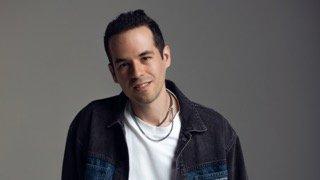
Photo: Courtesy Edgar Barrera
interview
Edgar Barrera, The Songwriter Behind 2023's Top Latin Hits, Shares How He Remains Grounded Amidst Success
Edgar Barrera is known for building musical bridges, blending unexpected genres and enabling fruitful collaborations. At the 2024 GRAMMYs, the prolific songwriter and producer is the only Latino nominated for Songwriter Of The Year, Non-Classical.
The life of producer and songwriter Edgar Barrera was shaped by cultural dichotomy. Born in McAllen, Texas, and raised between the Lone Star state and the Mexican border town of Miguel Alemán, Barrera spent his days connecting cultures and languages, making a space for himself.
"I was born on the border. I'm always trying to adapt to Mexican or American culture, growing up in the middle of those two worlds," Barrera tells GRAMMY.com. "This is what I always end up doing in the songs and with the artists I work with, I adapt to them, I adapt to their world, I learn [from them]."
This duality and his innate code-switching ability defined his essence as a musician. In the music industry, Barrera is known among artists as a great bridge-builder between stars. He forges unexpected collaborations and blends genres in effortless ways.
For example, "Un x100to", the smasher collaboration between Grupo Frontera and Bad Bunny, became one of the biggest Latin songs of 2023. It won the Latin GRAMMY Award for Best Regional Mexican Song, climbed to the top of Spotify's global chart, and made its way to Billboard’s Hot 100’s Top 10.
The single is one of nine songs that has earned Barrera a nomination for Songwriter Of The Year, Non-Classical at the 2024 GRAMMYs. He is the only Latino in this group and has been nominated for all Spanish-language songs. "It means that Latinos are breaking those barriers and that Latin music is important to the industry," Barrera says of the nomination. "To be considered in that category is already a victory. I feel I am paving the way for a Latin songwriter to be in future nominations."
The nod came days before he received the inaugural Latin GRAMMY for Songwriter Of The Year. At the 2023 Latin GRAMMYs, Barrera received 13 nominations and won three awards, including Producer Of The Year, and was featured in a collaborative performance with Camilo, Manuel Carrasco, and IZA.
Ahead of the 66th GRAMMY Awards, Barrera discusses how his upbringing shaped his career and creative process, as well as the importance of recognition for Latinos in the music industry.
This interview has been edited for length and clarity.
2023 has been an excellent year for you. What are you the most grateful for?
It has been a great year in my career. I have to be thankful for life and to God. I’m grateful to say that I make a living from this.
This is the only thing I know how to do; I am not good at anything other than making music. It is a blessing that people connect with the songs you create. What gives me the most satisfaction is knowing that people are enjoying, connecting, and experiencing the songs [I've worked on].
What did it mean to win the inaugural Songwriter Of The Year award at the Latin GRAMMYs?
I didn't think much about whether I was going to win or not. I was feeling happier and more excited because the Latin GRAMMYs were creating a category for those behind [the songs].
I said it that day they gave me the award; sometimes, the songwriter is the one who suffers the most in the entire music pyramid of how the industry is structured. The songwriter is the last one who gets paid and often doesn't get as much credit. For me, everything starts with a song. Without a good song, the artist is unknown; without a good song, the producer is unknown.
Music starts with a good song you can sing with just a guitar. That's what I like to do. I write the song, have it on guitar and vocals, and see what genre fits the best. That's why I always switch genres; I don't like to limit myself by saying that I only make urban, pop, or Mexican music. I'm not following trends but doing what feels right for the song.
What was your reaction upon discovering that you are the only nominee for Producer Of The Year, Non-Classical one competing with Spanish songs at the 2024 GRAMMYs?
I was in Madrid, and even though I knew the GRAMMY nominations were coming up, I wasn’t on top of it because it is usually tough to be nominated for those categories. I didn't expect it.
We had a Zoom with all the composers nominated in that category to get to know each other, and I kept thinking, what am I doing in this Zoom with all these people who write songs in English, country songs, rap songs, or pop songs? Here I am with my songs in Spanish.
I am happy with [the nomination] because it means that Latinos are breaking those barriers and that Latin music is important to the industry. It has become the elephant in the room that you can no longer ignore.
To be considered in that category is already a victory. I feel I am paving the way for a Latin songwriter to be in future nominations. I feel I have some responsibility; I am representing Latinos at an important moment in the industry.
Coming from Miguel Alemán, Tamaulipas, a town with 20,000 residents with no songwriters or producers, the fact that I can make music and dedicate myself to it is already a victory. Everything is a blessing and feels surreal.
You have been nominated for your work in nine songs. Is there a specific song that has brought you the most satisfaction?
They have all fulfilled something specific. For example, Karol G is a Selena [Quintanilla] fan, and she wanted to make a song in cumbia ["Mi Ex Tenía Razón"], a genre I grew up with. [The song] is like that tribute to my roots. Having an artist as big as Karol G on that song is very special.
In songs like "Un x100to," [a collaboration between] Bad Bunny, and a band like Grupo Frontera from my hometown, [it feels special because] we have many friends and grew up with the same cultural background. Returning to McAllen, Tamaulipas, to support a local group and having one of the biggest songs of the year with one of the biggest artists of the moment is also very special to me. It shows the newcomers that it is possible to reach those places — even coming from the same place we did. I would never have thought that the song would be No. 1 worldwide.
When did you first realize that you had a talent for songwriting?
It has always been my plan. I didn't go to school; I've never had a plan B. I've always been very stubborn in what I do.
I discovered I could write songs and liked writing songs when I was 15. I moved to Miami and started working from the bottom, lifting cables in a studio. I had to serve coffee. I went through the entire process to enjoy what is happening now. It didn't happen overnight.
I've never let it get to my head. I have no recognition, paintings, or awards if you go to my studio. I mean nothing; there is none of that. I don't like to think about that. I'm in my house right now, and you don't see anything on the walls; they're blank. I want to work as I have since day 1.
You have won 21 Latin GRAMMYs. Where do you keep the awards?
Those awards are at my parents' house. I send everything there. I don't have any awards at my house. My wife also tells me that our home is a place to disconnect, not to continue thinking about work. That helps me to stay rooted.
To know that the day before, I could have been with the biggest artist in the world, I could be with Shakira, Karol G or Benito, whoever I am currently working with, but when I come home, I feel that I am an ordinary person who has the blessing of working with the greatest artists of the moment. Realizing that also resets you, it keeps me grounded.
Did maintaining a lower profile help you in your career as a songwriter?
I am very quiet and shy. I express myself better by writing than by speaking. I like that people gradually discover who is behind the songs. I like that some people find that I wrote a song, and they make the connection, like the movie's endings, when you start connecting all the dots. I don't like telling people I did this or that.
When working with an artist, I am very clear that I am an instrument; I work for them. I don't have any ego. When working with artists, I listen to them and help them translate what they want to say in the songs. That is my job, and I try to be a tool for them; I don't want to be the protagonist.
You are known for your ability to make unexpected connections between artists and topliners; where did this talent come from?
It comes very naturally to me; I do it unconsciously. For example, in the collaboration between Carin León and Maluma, ["Según Quién"], I ended up being the person who connected them. In their case, I sent the song to Carin's team and introduced them about a week later. We organized a meal, and I made them get to know each other before recording the song.
In ["De Vuelta Pa' La Vuelta"] by Daddy Yankee with Marc Anthony, I was with Yankee in the studio. Yankee told me he wanted to do something different, and I showed him this salsa song. He likes it and tells me he wants to record it and do it in salsa. I connected Yankee with Marc — two legends who know each other, but I will gladly make that [musical] connection if I can.
That is part of why I created my record label, Border Kid Records, which is like a border that connects [two places], like the bridge between the United States and Mexico; I am a bridge between the artists.
You are a big fan of the Swedish producer and songwriter Max Martin. What have you learned from his career?
I am Max Martin's No. 1 fan. To me, he is the greatest of all time, and what I like about him is that he is not bragging about his achievements.
It felt like such a great discovery when I found out how he was. I told my friends you like this song because this songwriter made it, so you are not a fan of the artist; you are a fan of the songwriter.
I dreamed that one day, my songs would have a similar effect in Latin music and the way people would discover me. He has always kept a shallow profile. I'm not comparing myself to him at all, but something that he has and that I also do unconsciously is constantly collaborating with people; we are always nourishing ourselves with new songwriters and producers.
I always check Max Martin's credits and see him working with new people. And that's all about not believing that you know everything but learning and always listening to new people that has something new to say.
What advice can you give to songwriters or singers starting their careers?
Always be authentic and do not follow trends. I differentiated myself from the songwriters and producers when I started because I didn't use many bad words [in my songs]. I always wanted to avoid jumping on that bandwagon, following a trend.
It is about doing things differently and creating your own trends. I am one of those who make a bachata or a merengue; when a merengue is not even trending, you make it a trend by [picking] the right artist and song.
What is Edgar Barrera's mark in music?
My lyrics are simple, honest, straightforward, and up-to-date; that's my trademark. Production-wise, if you hear a real instrument or a musician playing live, guitars, or things like that, that's always my mark.
